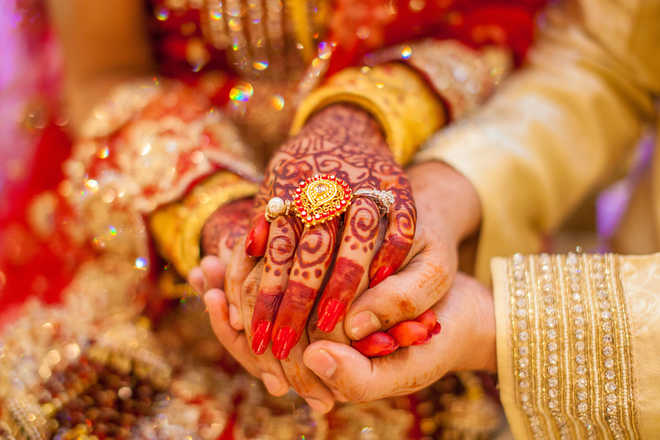
Col Mahesh Chadha (retd)
WHEN I attend weddings these days, I am wonderstruck! Gone are the days when the ceremony was considered a solemn occasion. All rituals were performed with sobriety and invocation of the Almighty. The function used to be held at the residences — covered with shamianas and bedecked with flowers and lights — of both the groom and the bride. Where the houses were small, a community ground would become the venue. The sound of the brass band indicated the arrival of the baraat, alerting the ladki-wallahs to gather at the gate. Vedic mantras or shabads were recited, followed by milani, when close relatives of each party would embrace one another. Someone from the groom’s side would recite sehra in honour of the groom and his family, and someone from the bride’s side would recite shiksha, highlighting the aspects of her upbringing with love and care, her delicate nature, and above all, her sacrifice to raise the family of her would-be husband.
As the baraatis were ushered in, it was incumbent upon the bride’s family to look after each and every one. After a round of cold drinks or a hot beverage, dinner or lunch used to be personally served to the baraatis by the ladki-wallahs, who dare not eat along with them. Generally, it used to be vegetarian fare, and serving hard drinks was a taboo, though some would stealthily savour it at their own expense and invite the ire of the elders!
The most important part, lanvan phere, was invariably performed at the home from where the bride would depart for the groom’s home.
Today, it is different. Weddings are held at a resort, a hotel or a picnic spot, as far away as another town. There is a long queue of cars, occupying most of the road space and creating a jam for commuters. It takes forever to reach the venue, and if late, parking becomes a problem. However, the rich opt for valet parking. Reception is, of course, as usual, but not the good old recitation of sehra and shiksha. In any case, one can’t hear anything in the deafening noise of the DJ and what not. Photographers take centre stage and one does not get to see the faces. There is a surfeit of drinks and snacks, from as early as the arrival of the first person, full of variety. It makes one rue at the quantity that is wasted — it can feed more than an equal number.
There is no limit as far as the time is concerned, despite orders of the administration. When all guests depart, it is time for the families of the groom and the bride to sit together and enjoy the feast. The lanvan phere, too, take place there itself, where a platform is erected. Nobody visits the bride’s place. She is brought in a flower-decked car to the groom’s house to start a life together.



























